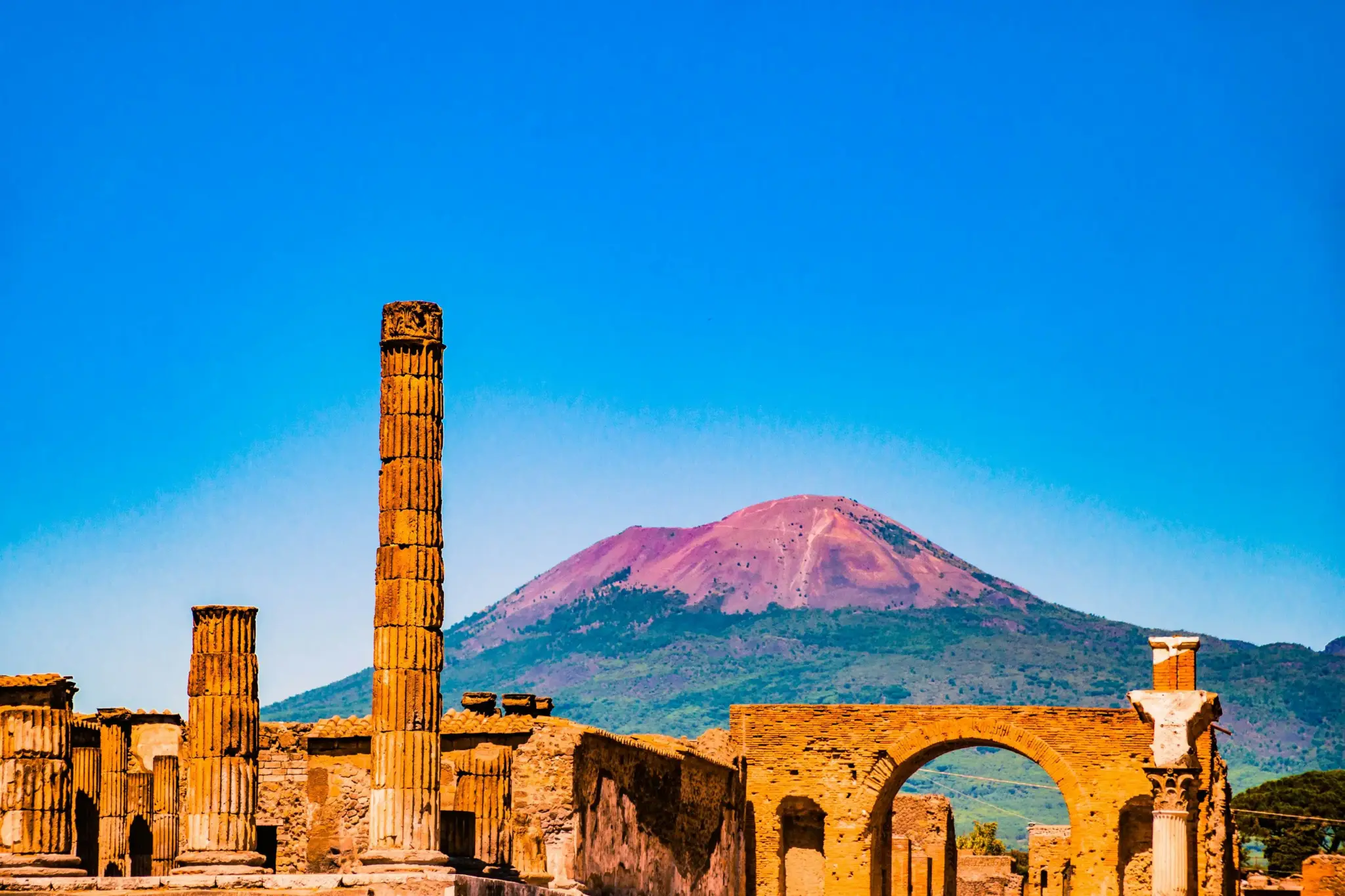About Pompeii:
- It is a preserved ancient Roman city located near modern day Naples, Italy.
- It lies at the southeastern base of Mount Vesuvius.
- The area was originally settled in the Bronze Age on an escarpment at the mouth of the Sarnus(modern Sarno) River.
- Pompeii was built on a spur formed by a prehistoric lava flow to the north of the mouth of the Sarno River.
- It was conquered and absorbed into the Roman Empire in 80 BCE.
- At its height, the small city had a thriving economy based on trade and agriculture.
- The population of the town has been estimated at 10-12,000, with one third being slaves.
- The city featured a complex municipal water system, an amphitheater, and a gymnasium.
- The city was buried in volcanic ash following the eruption of Mt. Vesuvius in 79 CE.
- Pompeii was basically lost and forgotten until it was rediscovered in 1748.
- Its excellent state of preservation gives an invaluable insight into Roman everyday life.
- It is a UNESCO World Heritage Site.
Q1: What is the Roman Empire?
The Roman Empire, at its height (c. 117), was the most extensive political and social structure in western civilization. Building upon the foundation laid by the Roman Republic, the empire became the largest and most powerful political and military entity in the world up to its time and expanded steadily until its fall, in the west, in 476.The empire began when Augustus Caesar (r. 27 BCE-14 CE) became the first emperor of Rome and ended, in the west, when the last Roman emperor, Romulus Augustulus (r. 475-476), was deposed by the Germanic King Odoacer (r. 476-493). In the east, it continued as the Byzantine Empire until the death of Constantine XI (r. 1449-1453) and the fall of Constantinople to the Ottoman Turks in 1453.
Source: ‘Scenes from Greek mythology’: Hall with Trojan war decorations uncovered in Pompeii
Last updated on June, 2025
→ UPSC Notification 2025 was released on 22nd January 2025.
→ UPSC Prelims Result 2025 is out now for the CSE held on 25 May 2025.
→ UPSC Prelims Question Paper 2025 and Unofficial Prelims Answer Key 2025 are available now.
→ UPSC Calendar 2026 is released on 15th May, 2025.
→ The UPSC Vacancy 2025 were released 1129, out of which 979 were for UPSC CSE and remaining 150 are for UPSC IFoS.
→ UPSC Mains 2025 will be conducted on 22nd August 2025.
→ UPSC Prelims 2026 will be conducted on 24th May, 2026 & UPSC Mains 2026 will be conducted on 21st August 2026.
→ The UPSC Selection Process is of 3 stages-Prelims, Mains and Interview.
→ UPSC Result 2024 is released with latest UPSC Marksheet 2024. Check Now!
→ UPSC Toppers List 2024 is released now. Shakti Dubey is UPSC AIR 1 2024 Topper.
→ Also check Best IAS Coaching in Delhi
























